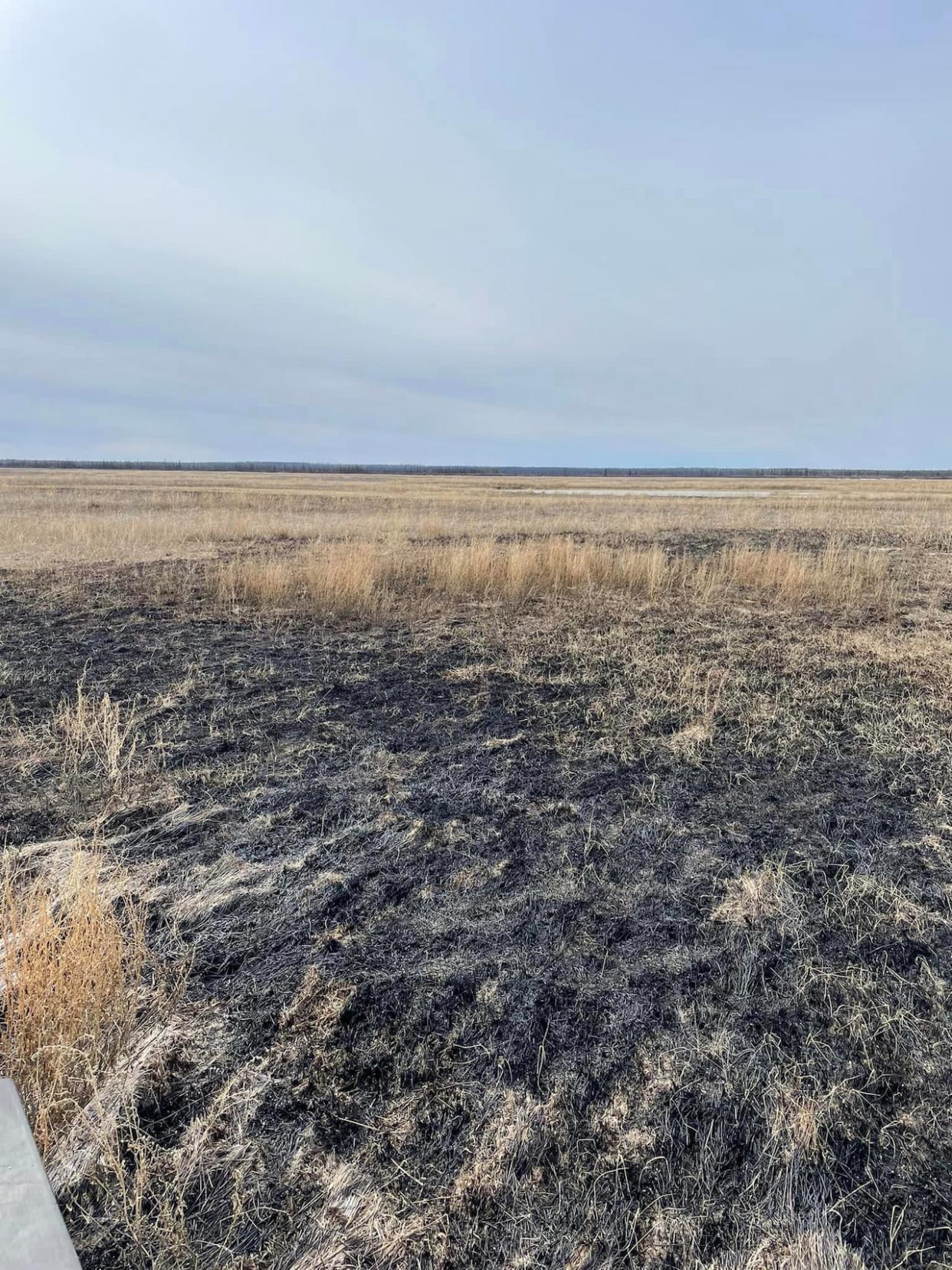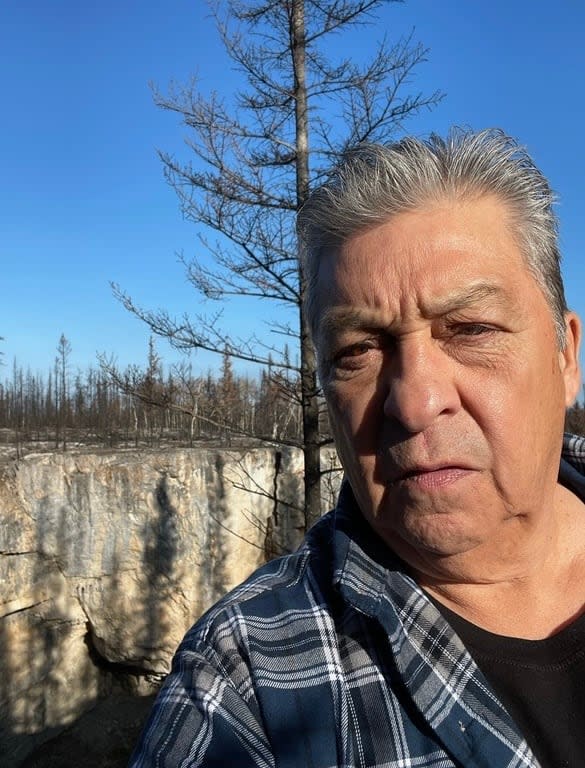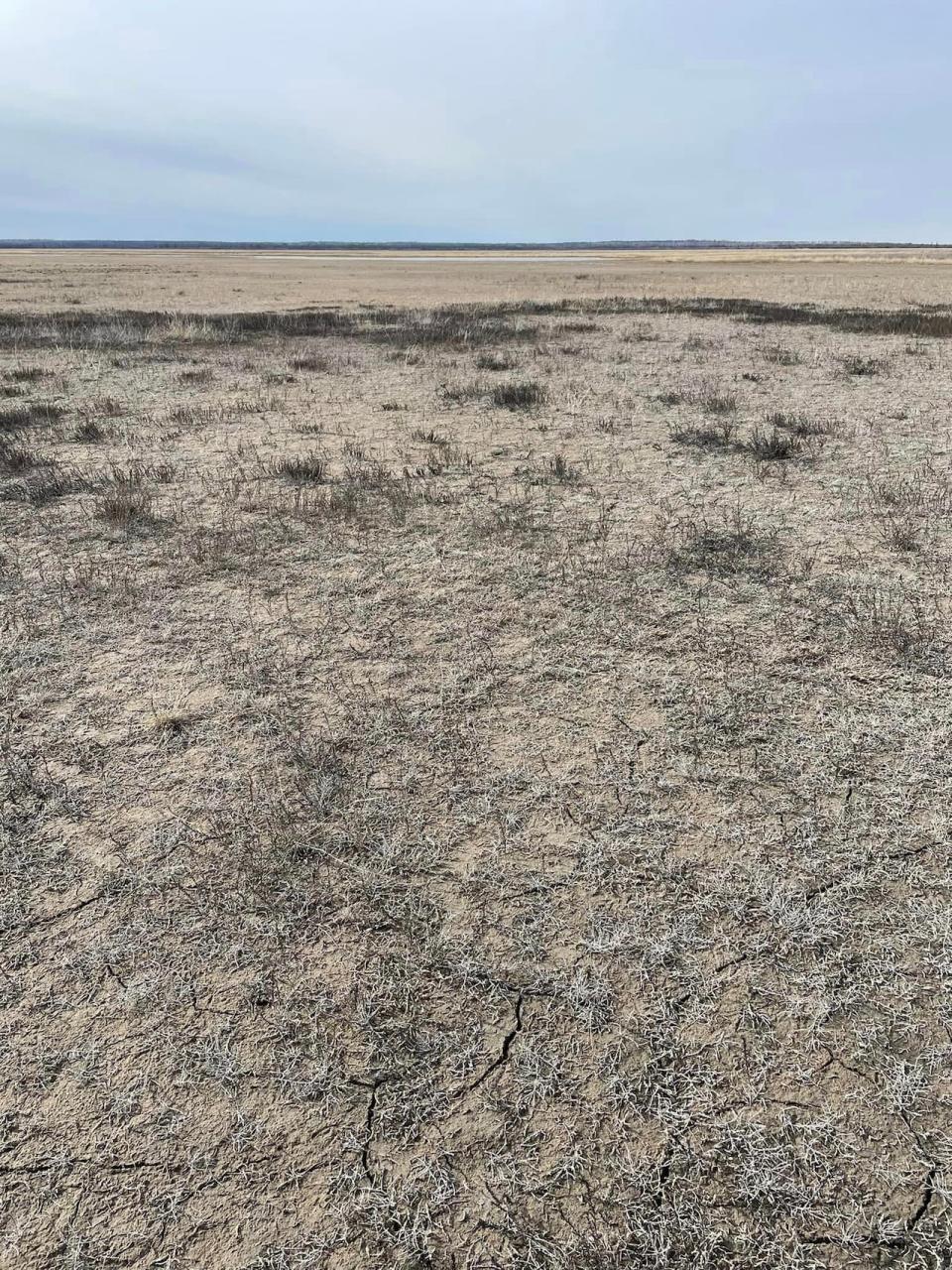'There's no water': This duck hunter in Fort Smith, N.W.T., went out and found no ducks

Earl Evans has been duck hunting in the springtime around Fort Smith, N.W.T., for 50 years.
This past week, he and a friend went out to their usual spot, about 15 kilometres west of the community in the Slave River wetlands. And for the first time, Evans returned home from that hunt without a single duck.
"We stopped and looked around and everything was just still, just dead," Evans said. "It felt like we were on the moon."
"That's the most devastating feeling in the world for a person that likes to go out in the bush."
Fort Smith was forced to evacuate for five weeks last summer as a wildfire threatened the community and burned much of the land around it.
Evans also lost two cabins in the fire.
Normally, Evans said, his hunting spot is "teeming with wildlife," with three feet of water in some places. Now, it's dried up, with burns still obvious on the trees and ground.
"We never saw a single thing," Evans said. "The only thing we saw there is burnt country."

Earl Evans, seen in this photo from last fall in Enterprise, N.W.T., says he's worried about future access to the land for young people after seeing the devastating effects of wildfire on the Fort Smith area. (Submitted by Earl Evans)
He and his friend normally go there to get ducks and geese for elders in the community and for their own families.
"There was not one single drop of water to be seen," he said.
"To see that, it's just gives you such a feeling of hopelessness and sadness for the wildlife and for the country and for the people that live in it."
Water levels historically low
The territory's spring water outlook, released by the territory's department of Environment and Climate Change, showed the Slave River is at a record low for this time of year. Snowpack on the river also ranged from extremely low to well below average.
Evans said spring is also a time when many people go upriver in their boats — but that's proving difficult this year.
"We can't access any of the rivers and any of the creeks. There's no water," he said.
"It just completely immobilizes us."
Evans said he also worries about what the future will look like for young people, especially when it comes to getting out on the land.
"We're losing that chance to take our kids out," he said.

Evans said this area 15 kilometres outside the community is usually 'teeming with wildlife.' (Submitted by Earl Evans )
Evans said some areas around the community are "severely, severely burnt," with tree roots sticking out of the ground and piles of ash.
Other areas, he said, had flash burns.
"Those areas will regenerate fairly quickly, but the huge amount of burn that took place is going to take a lifetime to recover — if it ever does," he said.

